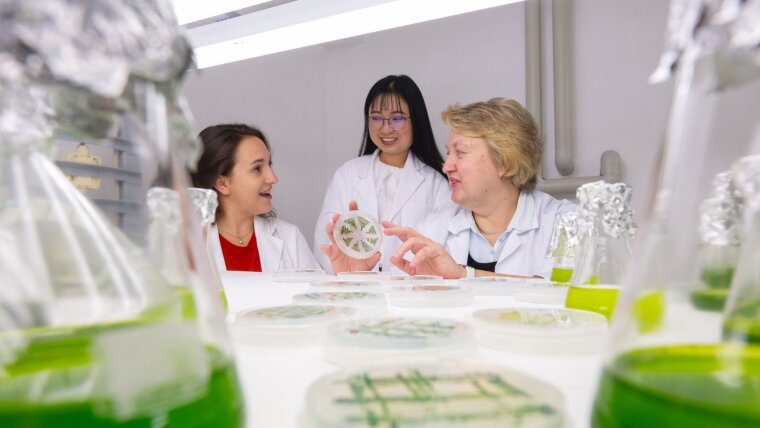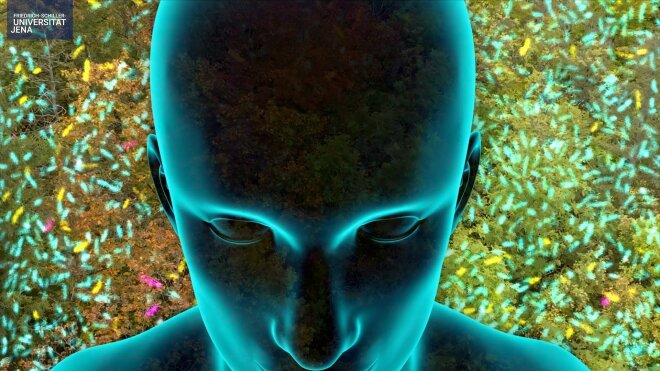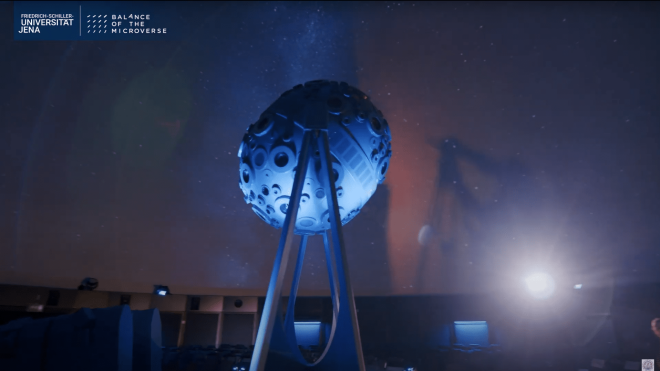
Excellent research on dynamic balances of microbial communities
"Balance of the Microverse"External link is a research cluster that, on September 27, 2018, was selected as one of the Clusters of Excellences to be funded by the German Excellence Strategy Programme. Funded by the German Research Foundation (DFG), the Cluster will enter its next seven-year funding period in 2026.
Complex microorganisms can be found in nearly all habitats on our earth. Their interactions between each other, with other organisms and with their environment are of great significance for the functioning of ecosystems, our climate and the well-being of plants, animals and humans. Anthropogenic impact or infectious microorganisms can cause a dramatic imbalance in microbial communities, resulting in the deterioration of ecosystems, weather extremes, severe crop loss or diseases. The vision of the Microverse Cluster is to investigate the dynamic balance of complex microbial communities from the molecular to the ecosystem level. This should enable us to develop new technologies to maintain the balance or restore it.
The Cluster of Exzellence "Balance of the Microverse" combines the expertise of the profile lines LIFE and LIGHT in microbiology, chemical biology, infection biology, clinical medicine, ecology, optics/photonics, materials science, bioinformatics, and ethics at the University, the University Hospital, and eight non-university research institutes. The Cluster builds on the Graduate School Jena School for Microbial CommunicationExternal link, and is supported by four Collaborative Research Centres, additional coordinated research programmes, and local industry partners.
Contacts
-
Köhler, Angela, Dr Executive Manager Cluster of Excellence
Leibniz-Institut für Naturstoff-Forschung und Infektionsbiologie
Beutenbergstraße 11a
07745 Jena -
Kolossa, Silvia, Dr Scientific Coordinator Cluster of Excellence
Forschungsinstitut
Adolf-Reichwein-Straße 23
07743 Jena -
Seeber, Juliane Science Communications Officer Cluster of Excellence
Forschungsinstitut
Adolf-Reichwein-Straße 23
07743 Jena -
Ludwig, Sandy Outreach Manager Cluster of Excellence
Forschungsinstitut
Adolf-Reichwein-Straße 23
07743 Jena
Cooperations and Participations
- LIFE Profile
- LIGHT profile
- Faculty of Mathematics and Computer Science
- Faculty of Physics and Astronomy
- Faculty of Chemistry and Earth Sciences
- Faculty of Biological Sciences
- Faculty of MedicineExternal link
- Jena School for Microbial Communication (JSMC)External link
- Abbe School of Photonics (ASP)
- Collaborative Research Centre 1076 – AquaDiva
- Collaborative Research Centre/Transregio 124 – FungiNetExternal link
- Collaborative Research Center 1127 – ChemBioSysExternal link
- Collaborative Research Center 1278 – PolyTarget
- Max Planck Institute for Chemical EcologyExternal link
- Max Planck Institute for BiogeochemistryExternal link
- Max Planck Institute für GeoanthropologyExternal link
- Leibniz Institute for Natural Product Research and Infection Biology – Hans Knöll Institute (HKI)External link
- Leibniz Institute of Photonic Technology (IPHT)External link
- Fraunhofer Institute for Applied Optics and Precision Engineering (IOF)External link
- Helmholtz Institute JenaExternal link
- DLR Institute of Data ScienceExternal link

